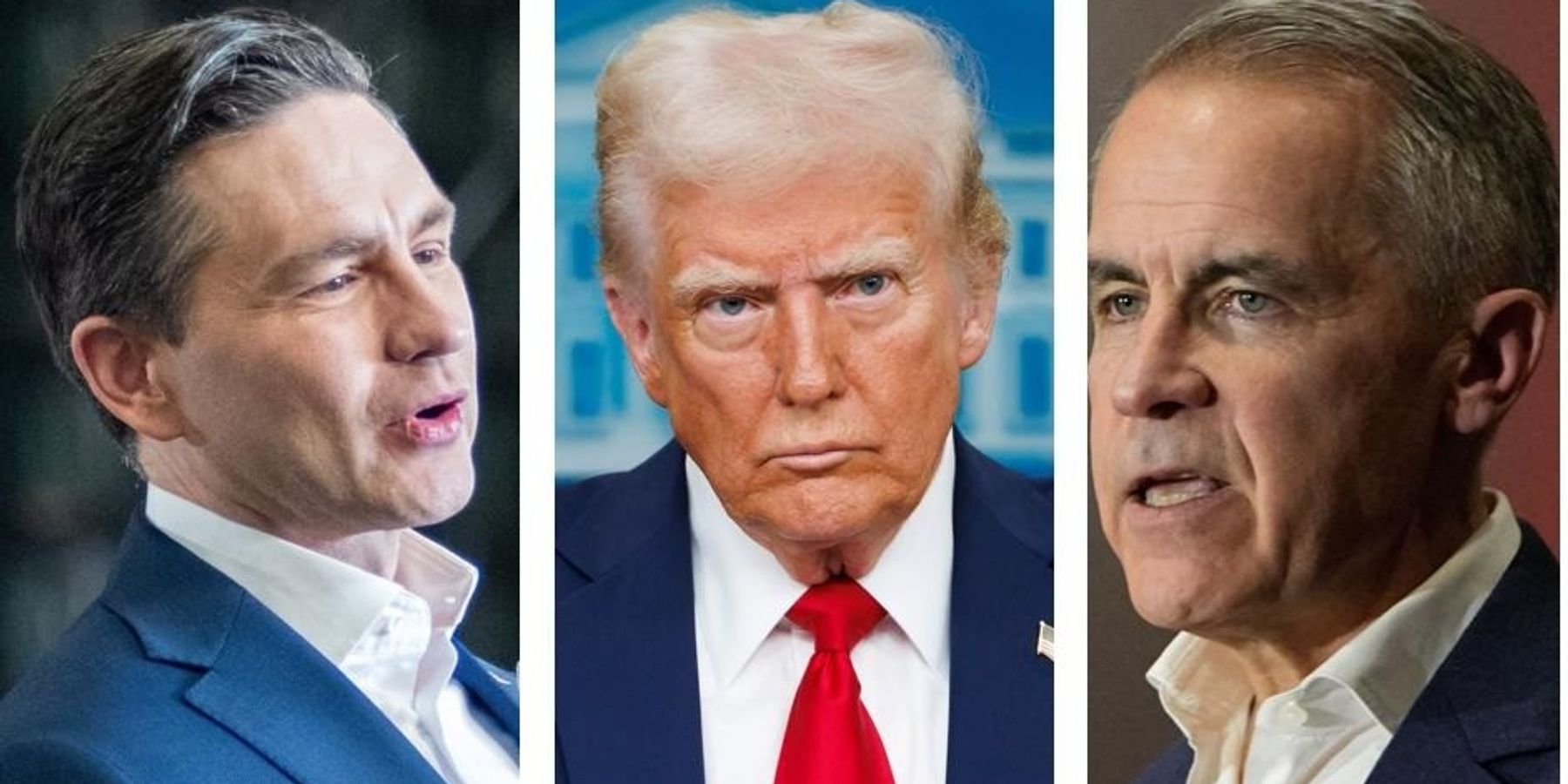As Canadians lined up to vote in today’s Canadian elections, Secretary of State Marco Rubio reiterated President Trump’s assertions that Canada would be better off as the 51st American state, days after Trump said he was serious and was not “trolling” on the matter.
“What the President said, and he has said this repeatedly, is he was told by the previous Prime Minister [Justin Trudeau] that Canada could not survive without unfair trade with the United States, at which point [Trump] asked, ‘Well, if you can't survive as a nation without treating us unfairly in trade, then you should become a state,’” Rubio said on Meet the Press.
“We'll deal with a new leadership of Canada. There are many things we’ll work with cooperatively [with] Canada on…but we actually don't like the way they treated us when it comes to trade,” Rubio explained.
Meet the Press host Michelle Welker asked whether there were “policy steps” taken to annex Canada; Rubio did not provide any. She pressed him to answer explicitly whether the U.S. wants to make Canada the 51st state; in response, Rubio reiterated Trump’s comments.
“I think the president has stated repeatedly he thinks Canada would be better off as a state,” he responded.
Back in mid-March, Rubio previously framed Trump’s calls to annex Canada as a “disagreement” between Canada and the U.S., saying “the president has made his argument as to why he thinks Canada would be better off joining the United States for economic purposes. There's a disagreement between the president's position and the position of the Canadian government.”
Altogether, Rubio’s Meet the Press comments come amid souring U.S.-Canada relations, where repeated annexation calls and an intense tariff spat led Canadian Prime Minister Mark Carney to say the old U.S.-Canada relationship was “over” late last month.
Rubio’s statements also follow Trump’s recent comments in an interview with Time Magazine, published Friday, emphasizing he “wasn’t trolling” about annexing America’s northern neighbor. “I'm really not trolling. Canada is an interesting case. We lose $200 to $250 billion a year supporting Canada,” he told TIME magazine. “We’re taking care of their military. We're taking care of every aspect of their lives. We don't need anything from Canada. And I say the only way this thing really works is for Canada to become a state,” he said.
Today’s elections for the Parliament are primarily pitting the Liberal Party led by current Canadian Prime Minister, Mark Carney, and the Conservative Party and its leader Pierre Poilievre. An Abacus Data poll yesterday found Carney in the lead, with Carney receiving 41% of the prospective vote over Poilievre’s 39%.
In comments made today, Trump even seemed to suggest Canadians should vote for him. “Elect the man who has the strength and wisdom to cut your taxes in half, increase your military power, for free, to the highest level in the World, have your Car, Steel, Aluminum, Lumber, Energy, and all other businesses, QUADRUPLE in size, WITH ZERO TARIFFS OR TAXES, if Canada becomes the cherished 51st. State of the United States of America,” he wrote.
“America can no longer subsidize Canada with the Hundreds of Billions of Dollars a year that we have been spending in the past. It makes no sense unless Canada is a State!”
As Canadians head to the ballot box, their politicians are telling Trump to butt out. “President Trump, stay out of our election. The only people who will decide the future of Canada are Canadians at the ballot box,” Conservative Party leader and PM hopeful Pierre Poilievre wrote today on X, emphasizing Canadians would “stand up” to America.
“Canada will always be proud, sovereign and independent and we will NEVER be the 51st state. Today Canadians can vote for change so we can strengthen our country, stand on our own two feet and stand up to America from a position of strength,” he wrote.
















